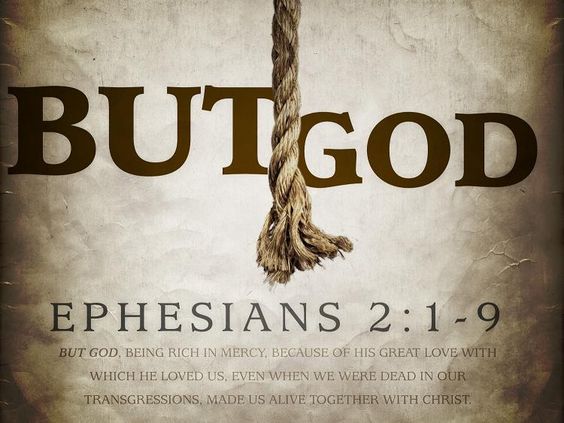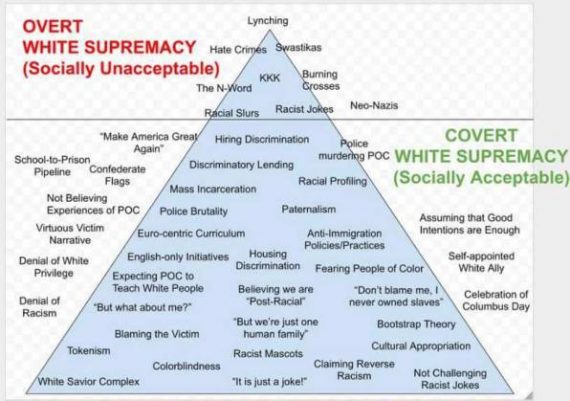Did you know God has prepared good works for you to do? In this study of Ephesians 2:10, we look at what these good works are, when God prepared them for you, and how this explanation of Ephesians 2:10 fits within the overall message of Ephesians 2. Prior to that, we will also answer a question from a reader about baptism in the Bible.

Question from a Reader
I am 72 years old have been a believer for 60 years. … I am not a theologian by any stretch but am filled with the Holy Spirit and KNOW how to hear and be led by Him.
I am taught by the Holy Spirit and truth is truth. I have over my 60 years in Jesus seen it all and been in a lot of it, many denominations from Presbyterian, Methodist, Catholic, AG, Charismatic, Pentecostal, Hyper-Calvinist you name it even Hebraic Roots. I have heard it all and more.
Baptism in water and in the Holy Spirit is totally misunderstood and applied. I know that Matthew 28:19 is NOT water baptism. I know Mark 16:16 is misused as “water baptism” saves. The only baptism with water in the Gospels is John’s baptism of repentance. How Theologians have come to believe it has been transferred to Jesus when the only “baptism” the Gospels speak of is Jesus will baptize with the Holy Spirit and fire. The immersion into the Name, the body of Christ, the Holy Spirit is what is spoken to the disciples and believers, NOT WATER BAPTISM!
Am I correct?
These are great questions about what the Scripture teaches regarding baptism. I wrote a series of posts a while back on baptism. Here is the introductory post: What is baptism?
Most of these posts found their way into my book, (#AmazonAdLink) Close Your Church for Good. This is a massive book, nearly 800 pages, but there is a section in the book on Christian “rites” such as the Lord’s Supper and Baptism. And not surprisingly, my Gospel Dictionary online course also contains a lesson on the word “Baptism.”
Anyway, the primary thing we have to recognize when studying the word “baptism” is that it is not a translation of the original Greek text, but is instead a “transliteration.” The Greek word is baptisma, and for some reason, when scholars translated the Greek into English, rather than translate the Greek word baptisma into English, they just changed the Greek letters into English letters and left it alone. So the Greek word baptisma becomes the English word baptism. You see? No translation.

So whenever you see the word baptism in the Bible, I recommend you translate it first. The word means “immersion” or “immerse.” And then look in the context to see what kind of immersion is in view.
And note that although the word “immersion” does bring to mind the idea of being immersed in water, it does not always mean that. For example, when people are thinking of moving to another country, they often want to learn the language of the people in that other country. One way to learn a foreign language is through something called “language immersion.” Does this mean that they get dunked under water until they miraculously learn the foreign language? No, it means they enter into the culture and among the people who speak that other language so that they are surrounded by it, and force themselves to learn it.
Biblical immersion works the same way. In the Bible, you can be immersed into a variety of things. Along with being immersed in water, the Bible also talks about being immersed in fire (Matthew 3:11 and Luke 3:16), immersed into the Holy Spirit (Romans 6), immersed into Moses (1 Corinthians 10:2), and immersed into Jesus. None of these cases have water in view.
 Anyway, this gets back to the question from the reader. He mentions Matthew 28:19 and Mark 16:16, and correctly points out that neither one refers to water baptism. He mentions the baptism of John, which was a baptism for the Jews only, and was a baptism of repentance. It had nothing to do with receiving eternal life or becoming a Christian.
Anyway, this gets back to the question from the reader. He mentions Matthew 28:19 and Mark 16:16, and correctly points out that neither one refers to water baptism. He mentions the baptism of John, which was a baptism for the Jews only, and was a baptism of repentance. It had nothing to do with receiving eternal life or becoming a Christian.
So the reader is right. There are many passages in the Bible which many Christians think refers to water baptism, when they do not. And this misunderstanding is all due to the unfortunate failure of the Bible translators to properly translate baptisma. How sad it is that the church has gone through so much turmoil, strife, and even violence, over a failure to properly translate a single Greek word.
Anyway, I appreciate the question. If you want to learn more about baptism in the Bible, just search my website for the word “baptism” or you can buy my book, (#AmazonAdLink) Close Your Church for Good or join my discipleship group and take my Gospel Dictionary online course. All of these explain baptism is much more detail.
Created for Good Works (Ephesians 2:10)
Ephesians 2:10 is a hinge verse. It’s a transition verse. It transitions from everything Paul has written so far in Ephesians 2:1-9, and introduces everything Paul is going to write in Ephesians 2:11-22.
So let’s look at the verse briefly, and then I will show you how Paul uses it to transition.
Ephesians 2:10. For we are His workmanship, created in Christ Jesus for good works, which God prepared beforehand that we should walk in them.
We are His Workmanship
First, Paul writes that we are His workmanship. There are numerous beautiful aspects about this word. First, in the New Testament, it is only used here and in Romans 1:20, where Paul uses it in reference to the things God made at creation. So when Paul uses this word, I believe he has in mind the original purpose and intent for which God made humanity. God created humans in Genesis 1 and Genesis 2 for a specific task and purpose.
 Back in my podcast studies of Genesis 1 and Genesis 2, we discussed this purpose at great length. We were created, as Genesis says, to be the image of God (Genesis 1:26-27), or the ambassadors of God, in this world. To be His physical presence here on earth. We are, I argued, the living, breathing, talking, walking, working statue of God in the Garden of God (Genesis 2:7). This is some of what Paul has in mind with the use of this word here. Go listen to some of those podcasts to learn more about this.
Back in my podcast studies of Genesis 1 and Genesis 2, we discussed this purpose at great length. We were created, as Genesis says, to be the image of God (Genesis 1:26-27), or the ambassadors of God, in this world. To be His physical presence here on earth. We are, I argued, the living, breathing, talking, walking, working statue of God in the Garden of God (Genesis 2:7). This is some of what Paul has in mind with the use of this word here. Go listen to some of those podcasts to learn more about this.
Second, the word Paul uses here is quite beautiful. In the Greek it is poiema. We are, in a sense, the poem of God. How do you like that?
Did you know God wrote poetry? He does. And guess what? You are His poetry.
You may think your life is full of pain and hardship, and it is. But there are also elements of joy and beauty and laughter. This is because you are a poem. A divine poem. All the greatest poems in the world have emotional highs and lows. Pain and beauty. Sorrow and laughter. And guess what? God is not done writing the poem of your life. So whatever you’re going through right now, look forward to tomorrow, in which God will write another stanza of your poem for you and all the world to read.
I find this idea beautiful and encouraging. With every second of every day, God is writing an epic poem with your life.
From N. T. Wright:
Now you may well feel that phrase ‘good works’ is a bit ho-hum, a bit ‘oh dear, here we go, we’ve got to behave ourselves’ and all that sort of thing. But it’s not like that at all. The word in the Greek for ‘what He has made us’ means we are God’s poem; we are God’s artwork. God has given us many, many gifts. The good works that we are to do are not simply referring to moral behavior.
God wants us to be fruitful. God wants us to be experimental. God wants us to be innovative.
God wants us to be His poem, in and for the world. Artists, musicians, poets, and dancers: this is your chance.
What makes this even more significant is that since we are God’s workmanship, since we are God’s hands, feet, and voice in this world, since we are an epic poem that He is writing, He’s not just going to abandon us. He’s not going to just leave us alone to go our own way. We are a significant investment for God, and He is going to take care of us so that He can get a good return on His investment. So that He can finish the poem in a crescendo of glory that takes our breath away.
Created for Good Works
This introduces the next idea Paul talks about in Ephesians 2:10. Paul writes that we are created in Christ Jesus for good works.
Lots of pastors and teacher misread this verse, and use it to teach that if we truly have eternal life, then we will live a life of good works. This is a terrible explanation of this text.
First of all, remember that Paul is not writing about how to have eternal life. That is not what this chapter is about. It is instead about how to live this life as God truly wants and desires, and how we can show the world a better way to live as well. Go check out the studies on Salvation in Ephesians 2:5-7 and the explanation of Ephesians 2:8-9.
Second, even if Paul was talking about how to receive eternal life in Ephesians 2:8-9, Ephesians 2:10 would still not be teaching that good works have anything to do with receiving, keeping, or proving that we have eternal life. Instead the verse would be about how to follow Jesus on the path of discipleship after we receive eternal life. Yes, God wants us to obey Him and follow Jesus in discipleship, but whether we do this or not has no bearing whatsoever on whether we receive eternal life, keep our eternal life, or provide evidence that we have eternal life. Discipleship is simply a matter of recognizing that God knows what is best for our life, and if we obey Him, we will live our best life now on this earth.
Nevertheless, this verse is not talking about this.

The good works that Paul has in view are the good works that God gave to humanity to perform all the way back in the Garden of Eden. Since Paul has just talked about how we are God’s workmanship, His poem, that He began at the creation of the world, this means that the good works are the tasks and responsibilities that God gave us all the way back at the foundation of the world.
Paul is saying that once we recognize and receive by faith the truth that has been revealed in Jesus (Ephesians 2:8-9), we can then start living the way God really wants us to live. We will be delivered (or saved) from the old way of living, the worldly way of living in death and deeds of darkness (as described in Ephesians 2:1-3), and can now start living in this world as the image of God, the ambassadors of God, the living, breathing statue of God in this world.
This point is further emphasized in the last part of Ephesians 2:10.
That we should walk in them
Paul writes that these good works were prepared beforehand that we should walk in them. Again, Paul is showing that the good works God has prepared for us are those that have been prepared beforehand. These are the good works God has always wanted humanity to perform. In my Genesis 1 podcasts, I pointed out that in Genesis 1, God performs seven key activities, and after God creates humans, God gives to humans the responsibility of performing all seven of these activities. God passes His tasks on to us so that we can share with Him in the work of taking care of this world. See the seven key activities here.
Finally, note that the Greek word Paul uses for the phrase “walk in them” is peripateo. It means “to walk about.” God wants us to walk around, explore, and investigate this world and all the possibilities and opportunities He has made for us. Now what is significant about this phrase is that the word “walk” becomes the key term in Ephesians 4-6. As Watchman Nee has pointed out, the book of Ephesians is dominated by three key verbs: (#AmazonAdLink) Sit, Walk, Stand. Ephesians 1-3 is about how we are seated with Christ in heavenly places. Ephesians 4-5 (and half of 6) is about how we are to walk as followers of God. And then the section in Ephesians 6 on spiritual warfare is about how we are to stand our grand against the attacks of the devil.

But here, Paul provides a foreshadowing, or preview, or the “walk” section of Ephesians. He is saying that we are to walk in a certain way as followers of Jesus.
And this brings us to how Ephesians 2:10 is a transition verse, or a hinge verse, in Ephesians 2.
Ephesians 2:10 as a Transition
As I have frequently pointed out in our study of Ephesians 2, the chapter is divided into three parts. The problem (Ephesians 2:1-3), the Solution (Ephesians 2:4-10), and the application (Ephesians 2:11-22).
In Ephesians 2:1-3, Paul explained how this world lives in a never-ending cycle of death and violence. These are the bad works of darkness, brought into this world through the deceptions of satan.
In Ephesians 2:4-10, Paul explained what God has done for us in Jesus Christ to rescue and deliver us from this cycle of death and violence.
Then, in Ephesians 2:11-22, Paul shows what this new way of life looks like. He shows us how we can be free from the evil deeds of darkness and death, and instead live in the good works of light and life.
And that is why Ephesians 2:10 is the transition. Paul is closing out the section on showing us what God has done for us, which does include the good works prepared for us since creation, and is transitioning to the section on how we can perform these good works in this world as God’s image, as God’s ambassadors, as God’s poem in this world.
Pretty exciting, right? We are finally getting to the crux of the issue, how God wants us to live now in this world, in a way that is radically different from the way the rest of the world living and functions. That is where we will be picking up next time, when we look at Ephesians 2:11.







 There is also an issue there at the end of the verse about the “gift of God” and what it refers to. What is the gift of God that Paul is referring to? Is it the grace? The faith? the salvation? I have taught about this frequently in the past, so I’m not going to dive deep into the question now. (See these articles:
There is also an issue there at the end of the verse about the “gift of God” and what it refers to. What is the gift of God that Paul is referring to? Is it the grace? The faith? the salvation? I have taught about this frequently in the past, so I’m not going to dive deep into the question now. (See these articles: 


 I went on to argue that the word for “sons” in both “sons of the kingdom” and “sons of wickedness” is better understood as “offspring,” which in the context, would indicate the behavior or results that come from living according to the ideas and teachings of the Kingdom of God vs. the kingdom of darkness.
I went on to argue that the word for “sons” in both “sons of the kingdom” and “sons of wickedness” is better understood as “offspring,” which in the context, would indicate the behavior or results that come from living according to the ideas and teachings of the Kingdom of God vs. the kingdom of darkness.



 Paul writes in Ephesians 2:7… That in the ages to come He might show the exceeding riches of His grace in His kindness toward us in Christ Jesus.
Paul writes in Ephesians 2:7… That in the ages to come He might show the exceeding riches of His grace in His kindness toward us in Christ Jesus.

 That is the way we all behave almost all of the time. Our actions are justified and righteous, and the actions of those who oppose us are evil and wicked.
That is the way we all behave almost all of the time. Our actions are justified and righteous, and the actions of those who oppose us are evil and wicked.





 First, I am not fond of the term “sinful nature,” and it is not the best translation of the terms here that Paul wrote in the Greek. The Greek word is sarx, which is best translated as “flesh.” I argue in
First, I am not fond of the term “sinful nature,” and it is not the best translation of the terms here that Paul wrote in the Greek. The Greek word is sarx, which is best translated as “flesh.” I argue in 
 Wrath is a fire that destroys everything it touches, and the fire of wrath is sparked by human desire that leads to human violence.
Wrath is a fire that destroys everything it touches, and the fire of wrath is sparked by human desire that leads to human violence.